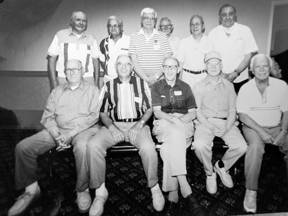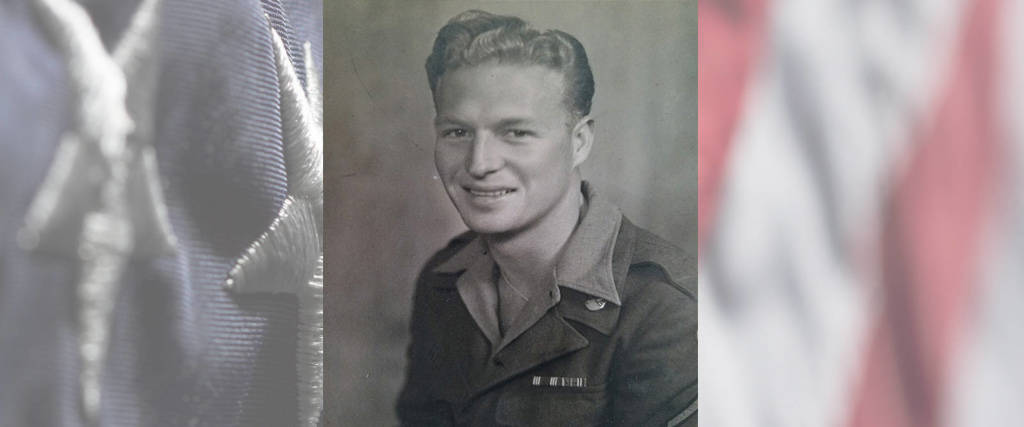U.S. Army World War II Hobart, IN. Flight date: April, 2019
By Al Rodriguez, Honor Flight Chicago Veteran Interviews Volunteer
Robert says: “I didn’t do anything special in the war” and emphatically declares: “I am no hero!” He considers going into combat for his country and possibly losing his life as doing “nothing special.” Yet, as a young man, he traveled from his home in Northwest Indiana to Europe and fought in battles at the farthest Eastern point occupied by the American ground forces in Europe. Nothing special?
Growing up in Gary, Indiana, with his parents and two younger twin brothers, Robert came from a musical family. His father taught him how to play the ukulele at 9-years-old; he played music at local events with his father and uncle. Robert played ‘by ear’ and never learning to read music. In 1938, as a teenager, he played guitar with his band, The Buckshot Dodgers. After helping his other band mates to learn the tunes, his group entered a contest on the Amateur Hour show in Chicago, but they didn’t win.
At 18-years-old, Robert went to work at U.S. Steel and shortly after that he met his wife Marie at a picnic. He ‘fell hard’ and they were married on Christmas Day of 1942; Bob was 19-years-old. They were married for 75 years and 7 months and have a daughter, three granddaughters and three great-grandchildren.
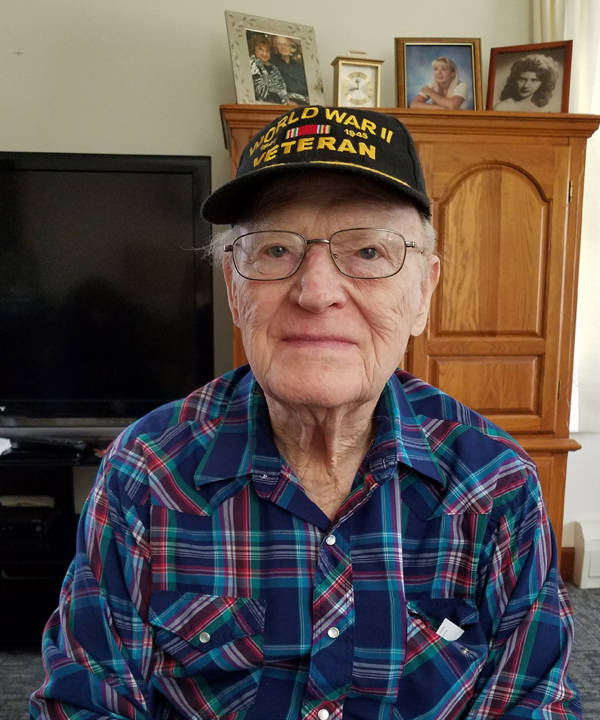
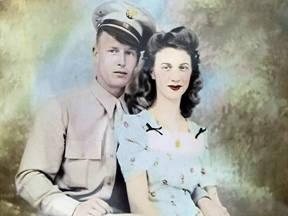
Drafted into the Army in February of 1943, Robert was assigned to the 71st Division, 607th Field Artillery, Battery A. His artillery training began at Camp Carson in Colorado Springs where he trained on a 75MM Howitzer. He remembers having to train with mules, not a pleasant chore. The mules were used to transport the different pieces of the 75 Howitzers up the Rockies, one on each mule.
The 607th trained at Hunter Liggett Military Reservation in California with the 105MM Howitzer, an upgrade from the 75MM. He was happy because they were able to deploy these Howitzers with trucks. And better yet, no more mules! In 1944, the 607th completed their training at Fort Benning, Georgia, and were ready for combat. The 71st shipped out from New York on January, 1945, for an 11-day trip to Le Havre, France. Robert remembers many people being seasick on the trip over including one guy who lost his lunch. A happier memory of that trip was playing music with his other shipmates.
Bob’s first duty when he arrived in cold and snowy France was to unpack the Howitzer guns. He had to clean them of the packing grease they were shipped in for the trip over, a nasty job. They trained in Normandy before being deployed. The first battle for the 71st was near Lemberg, France, on March 11, 1945. His memories of the Central Europe and Rhineland campaigns he served in included assembling and disassembling the 105’s as they transported them from place to place. His job as an artillery man was to pass the 105MM 4.1’ high explosive round to the gunner to load and fire. By the end of the war, he was promoted to a Gunner Corporal.
Robert remembers the town of Bitche, France, on their Eastern trek. He tells the story about recently speaking in front of a class describing his war experiences. Of course his pronunciation of Bitche was a hit. The teacher and parents in the room were taken aback but the children took it all in stride.
The 71st fought its way into Austria and was farther East than any other U.S. Army unit. They held positions in Steyr, Austria, near the Enns River firing the final shots of the European War on May 7, 1945 at 1500 hours. Robert says he remembers the war’s ending since he was manning one of the four Howitzers that fired the last rounds. The 71st was assigned occupational duties until it left for home and inactivation in March of 1946.
Robert returned to the U.S. and was honorably discharged from the Army on April 11, 1946. He went home to Gary and resumed working at the U.S. Steel Merchant Mill. He remembers no celebration when he returned from the Army; he was just one of many G.I.s returning to their previous lives.
His life after the war included his family, working as a crane man and playing his music. He loved his family but says “Music is my life.” Bob loved playing guitar and bass in local groups featuring big band and country music. During our interview, he sat near his 40-year-old Gibson guitar and amplifier. He also proudly showed us his 1967 Fender Electric bass.
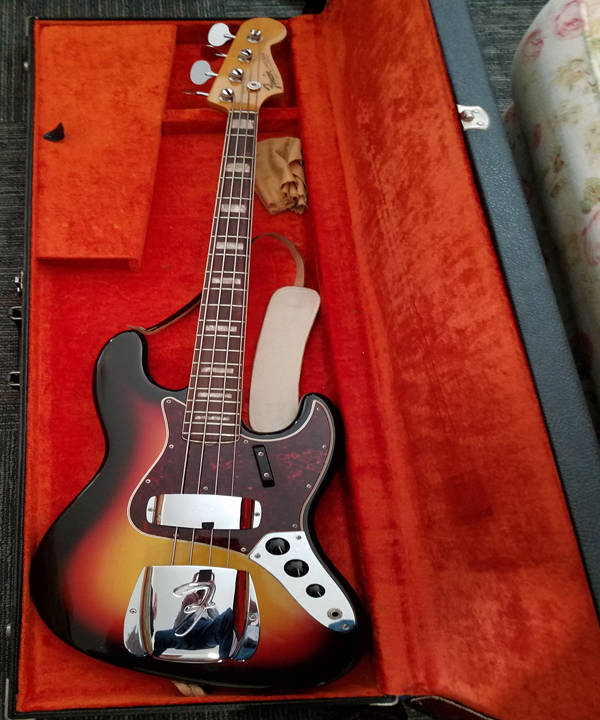
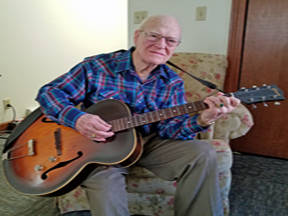
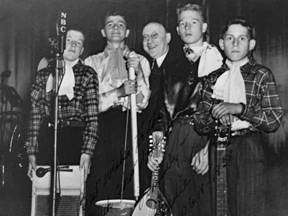
For many years, Robert attended his unit’s annual reunion in Shipshewana, Indiana. He looked forward to seeing his war buddies who would come from all over the country. Sadly, they haven’t met in the last five years. Robert thinks he’s outlived most of them.
Robert has never been to Washington D.C. and is really excited about his upcoming Honor Flight. He’s being careful to stay healthy so he can make the trip, even giving up exercise to avoid injuries.
The definition of a hero is a person who is admired or idealized for courage, outstanding achievements, or noble qualities. Robert epitomizes the motto Service above Self. His country asked him to go to war and he was in battles. Yet he feels like he didn’t do anything special. Robert is indeed a hero.
